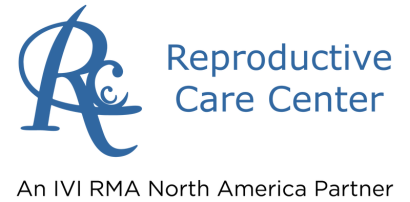COVID-19 Update
RCC has relied on recommendations from ASRM, the CDC, and the Utah State Health Department to navigate the COVID-19 pandemic in an effort to minimize risk and follow recommended preventative measures. Below is the latest recommendation from ASRM.
- Effective immediately, our policy will be as follows:
- Employees & patients can choose to mask, or not, in clinic as long as they are healthy.
- Employees & patients who are sick with suspected viral/bacterial infection should not be in clinic. Sick patients will need to reschedule appointments once the illness resolves.
- Employees & patients who have symptoms not suspected as viral/bacterial infection may be in clinic but will be required to mask.
- Children are not allowed in the clinic.
ASRM COVID-19 Task Force Update #20
Summary Statement
Epidemiology
- Over the past two years, it has become clear that the COVID-19 pandemic is not likely to be completely eradicated. However, it will eventually transition to an endemic disease, with occasional variations in incidence.
- Because of the challenges inherent in disease surveillance, moving forward, it will be important to identify an array of parameters associated with disease burden that will necessitate the temporary reinstitution of mitigation strategies. Such parameters may include the number of hospitalizations in a specific region, the number of new cases, and wastewater surveillance systems.
Vaccination
- Physicians and health care providers should continue to discuss and encourage vaccination and booster shots with all patients who are considering pregnancy or who are currently pregnant.
- People > 12 years old who received 2 doses and a first booster dose of an mRNA vaccine and who are moderately or severely immunocompromised should receive a second booster dose using an mRNA COVID-19 vaccine at least 4 months after the first booster dose.
- People ages 18-49 who received the Janssen COVID-19 vaccine and the booster who are not moderately or severely immunocompromised should receive a second booster dose using an mRNA COVID-19 vaccine at least 4 months after the first Janssen booster dose.
- The ASRM Task Force recommends that physicians should follow CDC guidance closely as it evolves to define who should get a second booster. Current recommendations do not include pregnant patients in the immunocompromised group.
Telemed
- During the height of the pandemic, telemedicine was instrumental in improving access to care while maintaining social distancing to decrease the risk of transmission of COVID-19.
- Telemedicine offers many advantages for patients and physicians alike in the delivery of quality care and should be encouraged and supported to facilitate and maintain improved access.
- Limitations exist for providing telehealth services to patients who live in different states due to medical licensing or liability issues. The Interstate Medical Licensing Compact between states streamlines the licensing process for physicians allowing practice in multiple states. However, not all states participate in the compact. It is essential for providers to be aware of the specific agreements in each state and to be aware of licensing restrictions for their specific state.
Operating Fertility Practices in the ERA of COVID-19
Unless and until SARS-CoV-2 mutates itself out of existence, fertility practices will continue to face episodic challenges with spikes of illness among patients and personnel. The principles addressed when fertility services resumed after the initial lockdown continue to serve as guideposts for ongoing operations:
- Surveillance: All programs will need to monitor local conditions in the context of national and international trends. Mutant strains of varying contagion and severity will dictate the actions taken to mitigate risk to all persons.
- Screening: Simple algorithms that distinguish individuals who are symptomatic from those who are not may be sufficient to permit entry to the center (both patients and employees) when the prevalence of the disease is low, whereas scalable testing programs may be activated ranging from either point of care self-administered tests done at home up to professionally administered medical-grade tests. Programs based in hospitals that govern operational procedures may not have the flexibility to do less than the institution requires but may choose to implement more stringent requirements based on best medical practices as they pertain to reproductive medicine.
- Action: Masking with well-fitting N95 respirators has proved very effective in mitigating the spread of disease. It would be prudent to keep a supply of these on hand in the event of an outbreak of a new virulent strain. Vaccination continues to prove beneficial in mitigating the severity of illness. Clinics should continue to encourage vaccination of both employees and patients.
- Staying Informed: Keeping current on new developments is a challenge for the individual, but practices should consider maintaining a small group tasked with aggregating and disseminating information to program leadership. This will ensure that actions appropriate to current conditions can be made proactively rather than reactively.
Conclusions With Current State of Affairs
- The ASRM COVID-19 Task Force has accomplished its current goals of providing guidance and recommendations to the ASRM community to guard the health and safety of our patients and staff while providing continuity and access to care. This will be the last scheduled update. However, the Task Force will reconvene on an ad hoc basis if needed.
- The Task Force has followed the science, supported the development of evidence-based research, and combatted the forces of misinformation.
- The Task Force has provided FAQs for the ASRM Membership regarding vaccination related to pregnancy and future fertility. We encourage members to share links to these educational tools within their practices, to patients, and on social media.
- We have acquired vital knowledge to manage not only this pandemic but also to be prepared for future pandemics. ASRM has proven to be a robust and resilient organization dedicated to providing quality patient care for the urgent and essential services of helping people create families through reproductive medicine.
Updated 4/28/22







